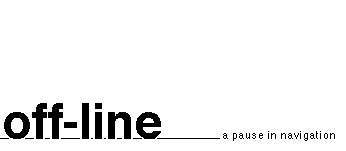Farrier? That’s such an old word that I had to look it up
in the dictionary (and the spelling check on my computer doesn’t recognize it).
A lot of today’s newfangled terminology sounds just as strange – and old.
It may be dead before any dictionary bothers to record it.
Let’s assume, for a moment,
that we live in a world where the fastest means of transportation
is riding horses – or using horses to drag carts and coaches.
Then comes the motorcar. What happens to the
“farrier”, the chap that shoes horses? If that’s
all he knows, his future is rather dismal. If he is a good
“blacksmith”, he can learn to fix cars.
It may or may not be true that
the web era
is over. But technologies are changing and what’s leading
today may be obsolete tomorrow. I know “web
specialists” who can’t read HTML
code. They set up a page with some graphic software, convert it automatically,
and when something goes wrong they don’t know how to fix it.
Quite often they don’t even bother to check if it works
online. And, what’s even worse, they don’t care about
content, readability or “usability” (that’s a
catchword today but I don’t know many people who understand
what it means). They are only interested in some flashy
technique that may please the eye (until it becomes so common
that it’s only boring) but doesn’t serve any real purpose.
Peculiar? Well, yes; but that’s the way most people work.
Even the best web “experts” may be in trouble,
a few years from now, if all they know is how to set up a
website. I don’t know if the next evolution will be in
technology – or it will be enough to make a radical change in
something more basic, such as strategy, communication and
content. I don’t know if the historians of tomorrow will
consider the world wide web as a lasting feature or a
short-lived phase in the development of the internet. But the
fact is that there will be more failures in e-business if we
don’t go back to the original blueprint – and understand what
makes the net different from other means of communication.
In the ridiculous proliferation of clumsy
acronyms, the latest fashion is P2P
– peer-to-peer. Someone now is suggesting, not unwisely,
that we could make a step forward if we got rid of all the “this-to-that”
jargon and settled for A2A –
anyone-to-anyone. That’s the internet, isn’ìt it?
The “site-centric” era is over. It can be
propped-up to keep it artificially in place, but it it’s only
a prop, a facade, an empty box. It was only a short-lived
disease, one of the growing pains of the net. It was an
attempt to “tame” the net and force it into a
broadcast pattern. But under that clumsy surface the real,
wild, untamed net, that has no hubs or portals, where each
node (each person) is the center of its own, tailor-made
network... is alive and thriving (hardly noticed by the
mainstream media and the broadcast-minded people who are
startled and confused when the get a glimpse of the real internet).
I am not suggesting that we should go back to gopher,
veronica, “anonymous FTP” or echomail.
But the big step forward that we must make is “back to basics”.
Let’s forget the jargon and find the simple truths that can
be explained in plain language. “Peer to peer”
communication is not a new discovery or a new technique
invented by Napster or Gnutella. It’s the heart and soul of
the internet. It’s actually older than the internet.
There were nets before the internet, and they wanted
interconnection. There was e-mail before the @. There were
newsgroups and mailing lists, communities and netiquette,
before the TCP/IP protocol became a standard.
There was online trading long before anyone coined the word
e-commerce. If some monstrous glitch destroyed all of the internet,
we would have to re-invent it to fit the human needs.
(See Is the internet forever?)
Many billions of investment will be wasted, many
of today’s most powerful empires will crumble.
I don’t know which, when and how –
and I don’t really care. I don’t think
it’s particularly important to know which technologies
will replace the rather clumsy stuff that we are using today.
The substance is not technology, it’s human relations.
Those don’t change so quickly. They evolve gradually,
they build up over time, and they are solid ground on which
long-lasting relationships (including business) can be based.



